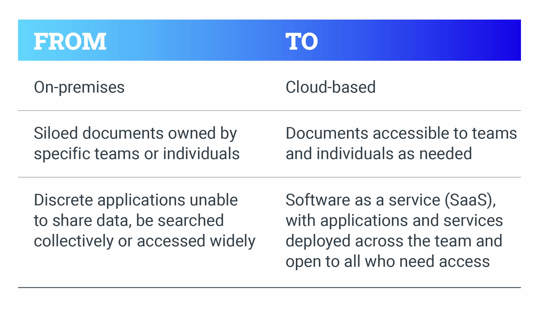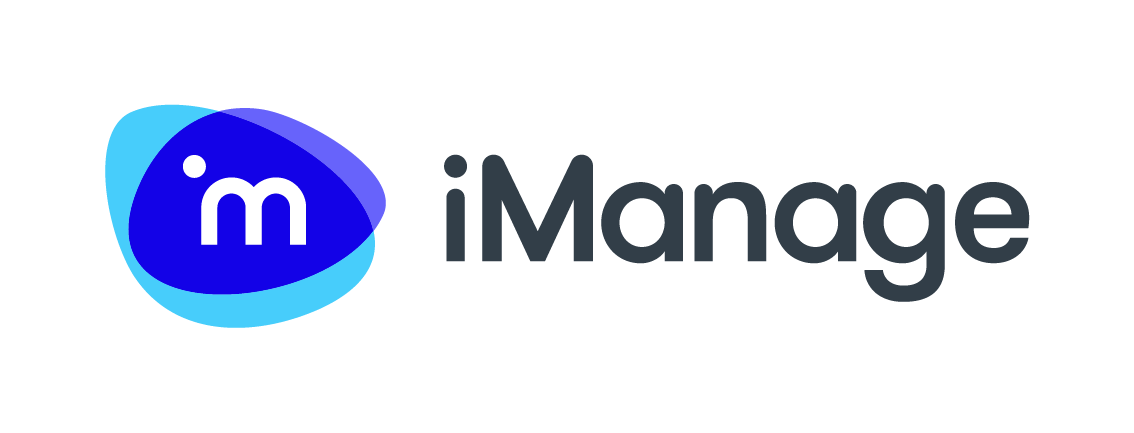The future of document management
At iManage we see more and more organizations move toward integrated technology and an integrated document management and retention strategy.
On the technology side, this is the direction of travel:

Transform how you manage and use knowledge
On the document management side, as well as thinking about how documents are created, shared, and utilized, organizations need to think about retention. It is often unworkable to have a retention policy of say three to five years for documents when many organizations have decades of historical information that remains a vital part of their knowledge base.
But setting retention policies that apply to documents across a range of different applications or platforms and expecting people to manually copy what they need to keep as part of their daily work practice isn’t feasible, either. And as more pressing tasks are prioritized, irreplaceable knowledge assets may be lost.
What is the solution to this dilemma?
At our latest 2023 ConnectLive event, iManage customer MassMutual explained how legal brings emails into iManage so that a blanket retention policy can be applied and, crucially, with no loss of important historical emails or their attached documents. Once this information lives within iManage, critical organizational knowledge is not only retained, it can be searched against, along with other company data.
This kind of move can be transformational to how a business manages and utilizes its knowledge. MassMutual’s legal team said their work with iManage on emails and retention policies has even helped them take a leadership position on data retention within the wider organization. They said they planned to take their strategy beyond Outlook — and why wouldn’t they?
In iManage, documents that were once saved as attachments to personal emails can be indexed using metadata, and their precious content made available to a much broader group of users. Knowledge that could previously be retrieved only if you knew it existed, knew who to ask, and they knew where to find it, is now integrated into the organizational knowledge base. Its usefulness and value is transformed and available to all.
The heart of the organization
Document management lies right at the heart of what organizations do. Opening up access improves productivity for everyone. Establishing retention policies that are legal, fair, and (above all) workable saves users from doing their own document triage. And all of this makes work easier for the technical team, as well.
But moving your emails and attachments into the broader knowledge base doesn’t happen by accident. An organization doesn’t transition to an entirely new way of working without a vision — and a strategy that can make the vision real. So what’s your vision? And what’s your strategy?





About the author
Stuart Douglass
Stuart Douglass has 25+ years of experience in the technology industry. He specializes in helping corporate legal departments reach their goals with the right technology.